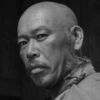10 System Theory Books That Will Change Your Perspective
Discover insights from experts like Sriram Krishnan, Patrick Oshaughnessy, and Hunter Lovins in these top System Theory Books



What if the way you understand complex problems is missing a crucial piece? Systems theory offers a lens that reveals hidden patterns and interconnections shaping everything from family dynamics to global ecosystems. As challenges grow more intertwined, grasping these systemic forces becomes essential to making sense of today's world.
Experts like Sriram Krishnan, a veteran product lead at Twitter and Facebook, found Thinking in Systems pivotal for navigating complex product ecosystems. Patrick Oshaughnessy, CEO of O’Shaughnessy Asset Management, draws on The Systems Bible to rethink risks in investment and management. And Hunter Lovins, founder of Natural Capitalism Solutions, champions systems literacy as key to effective leadership and change.
While these expert-curated books provide proven frameworks, readers seeking content tailored to their specific background, goals, and interests might consider creating a personalized System Theory book that builds on these insights.
Recommended by Sriram Krishnan
Investor and former product lead at Twitter and Facebook
“@alive_eth Fantastic book” (from X)
by Donella H. Meadows, Diana Wright··You?
by Donella H. Meadows, Diana Wright··You?
Donella H. Meadows, a pioneering environmental scientist and systems analyst, wrote this book inspired by her groundbreaking work on Limits to Growth and her dedication to understanding complex global challenges. You learn to recognize how systems operate through feedback loops, delays, and interconnections, gaining tools to analyze problems from climate change to organizational behavior. The book guides you through concepts with relatable examples like thermostats and sibling dynamics, making systems thinking accessible beyond theoretical models. If you're tackling issues that involve interdependent parts or seeking to approach problems holistically, this book offers a clear framework, though it’s less suited for readers looking for purely technical or mathematical treatments.
Recommended by Patrick Oshaughnessy
CEO @ O’Shaughnessy Asset Management
“@Alex_Danco @tobi The best book. I always think of the image of the French guns pointing the wrong way and unable to turn.” (from X)
When John Gall first discovered the quirks and paradoxes of systems, he crafted this book to unpack why even well-designed systems often fail or behave unexpectedly. You'll learn to recognize systemic traps like "the image of the French guns pointing the wrong way," which Gall illustrates to show how system components can misalign or malfunction. The book dives into the counterintuitive behaviors of systems large and small, offering insights into why information can degrade and hallucinations increase in closed systems, as highlighted in its chapters. If you're grappling with complex projects or organizational challenges, this book offers a fresh lens to rethink system dynamics beyond standard theory.
by TailoredRead AI·
by TailoredRead AI·
This personalized book offers a tailored approach to system theory, focusing on the core principles and their application to your unique interests and skill level. It provides a detailed exploration of system structures, interdependencies, and dynamic behaviors, allowing you to grasp complex systemic patterns relevant to your context. The book cuts through generic theory by delivering targeted insights on system boundaries, feedback mechanisms, and emergent properties that align with your specific goals. By integrating personalized frameworks, it addresses both foundational concepts and practical strategies for analyzing and designing systems in diverse fields, ensuring the content fits your particular situation without extraneous information.
by Niklas Luhmann, Peter Gilgen··You?
by Niklas Luhmann, Peter Gilgen··You?
When Niklas Luhmann first discovered the complexities of social systems, he set out to clarify their structures and dynamics through a unique lens that extends beyond traditional sociology. This book distills his sophisticated systems theory into accessible concepts, illustrating applications across politics, economics, religion, and science, with chapters dedicated to organizational and familial systems. You’ll gain a grounded understanding of how systems operate holistically and the interplay of communication within them. If you want to explore the foundational principles of systems theory with practical examples that bridge multiple disciplines, this book offers a thoughtful yet rigorous approach, though it demands a patient and engaged reader.
by Mignonette N. Keller, Robert J. Noone··You?
by Mignonette N. Keller, Robert J. Noone··You?
The book challenges the often simplistic views of family dynamics by presenting Bowen Family Systems Theory as a complex, intergenerational framework for understanding familial emotional processes and individual behaviors. Drawing from decades of research and clinical practice, Keller and Noone explore key concepts like differentiation of self, emotional cutoff, and the multigenerational transmission process, showing how these shape family interactions and individual stress responses. You gain insight into methodological approaches for researching these dynamics, linking theory closely with data collection and analysis. This is a valuable read if you're involved in clinical practice, social science research, or want a deeper understanding of family systems beyond surface-level psychology.
by Ludwig Von Bertalanffy··You?
by Ludwig Von Bertalanffy··You?
Drawing from his extensive background as the creator of general system theory, Ludwig von Bertalanffy developed this collection to trace the evolution and practical applications of his ideas. You gain insight into how systems interact and solve complex problems across disciplines, with specific focus on foundational concepts and development stages that shaped the field. Chapters detail core principles like system dynamics and hierarchy, making the book suited for those tackling interdisciplinary challenges. If you want a deeper understanding of how system theory informs problem-solving beyond isolated fields, this book offers a thoughtful exploration without unnecessary jargon.
by TailoredRead AI·
This personalized book offers a step-by-step daily action plan designed for effective implementation of systems thinking principles. It provides a tailored approach that focuses on practical exercises, tools, and reflections to embed systems thinking into your daily workflow, cutting through generic advice. Readers gain insight into identifying feedback loops, mapping interconnections, and applying systemic analysis within their unique contexts. By emphasizing concrete daily tasks, it bridges the gap between theoretical frameworks and real-world application, ensuring the content fits your specific goals and industry challenges. This tailored framework equips you to transform complex problem-solving into manageable, consistent practices over 30 days.
by Dr. Roberta M Gilbert, Greg Jacobs··You?
by Dr. Roberta M Gilbert, Greg Jacobs··You?
When Dr. Roberta Gilbert first realized how deeply emotional processes shape family and organizational dynamics, she set out to clarify Bowen family system theory. This book breaks down the eight foundational concepts—from the nuclear family as an emotional unit to complex ideas like the family projection process and multigenerational transmission—in a straightforward, no-frills manner. It offers concrete insights for anyone interested in understanding emotional interdependence, with special sections addressing parents, coaches, and leaders, making the theory applicable to diverse roles. If you want a focused, theory-driven exploration that connects family systems to leadership and coaching, this book delivers without unnecessary complexity.
by João P. Hespanha··You?
by João P. Hespanha··You?
What if everything you knew about system theory was wrong? João P. Hespanha challenges conventional approaches by focusing strictly on linear systems from a control and estimation perspective. Drawing from his role as associate director at UCSB's Center for Control, Dynamical Systems and Computation, he distills complex topics like controllability, observability, and state feedback into a lecture-style format that clarifies rather than complicates. You’ll engage with annotated proofs revealing how to construct rigorous arguments and practical MATLAB commands that bridge theory with computation. This book suits students and instructors seeking a balanced, methodical understanding of linear systems without unnecessary distractions.
by Sheryl Cababa, Kevin Bethune··You?
by Sheryl Cababa, Kevin Bethune··You?
When Sheryl Cababa first recognized the limitations of traditional design approaches, she integrated systems thinking to enrich how designers solve complex problems. Drawing from her extensive background with clients like Microsoft and the Gates Foundation, this book teaches you to map interconnections within design contexts using tools like causal loop maps and stakeholder analysis. You'll learn to combine user-centered design with systemic perspectives to better envision future impacts and societal benefits. This is especially useful if you work in design, healthcare, technology, or education and want to broaden your approach beyond isolated solutions.
by Zoe McKey··You?
Unlike most system theory books that dive deep into technical jargon, Zoe McKey's approach translates complex concepts into everyday language, making systems thinking accessible and applicable to personal and global challenges alike. You learn to recognize how interconnected systems influence your life, from relationships to socio-economic issues, and how to design models and maps that pinpoint underlying problems rather than just symptoms. For example, the book explains strategic planning through system maps and highlights how failures like poverty and conflict are systemic rather than individual faults. If you're looking to boost your critical thinking and problem-solving skills with a fresh perspective, this book offers practical frameworks grounded in real-world applications.
by Jules Pretty··You?
by Jules Pretty··You?
When Donella Meadows first realized how deeply interconnected our world's challenges are, she transformed systems thinking from abstract theory into a practical lens for understanding complexity. This book offers you tools to see beyond isolated events and grasp the patterns and structures driving outcomes in economics, environment, and organizations. You'll explore concepts like feedback loops, stocks and flows, and leverage points, which Meadows explains with clarity and humility, urging attention to what truly matters rather than just what is measurable. Whether you're a student, professional, or simply curious about global sustainability and problem-solving, this primer invites you to think more holistically and act more thoughtfully.
Get Your Personal System Theory Guide in 10 Minutes ✨
Stop following generic advice. Receive targeted, actionable system theory insights tailored to your goals.
Join 15,000+ System Theory enthusiasts who've personalized their approach
Conclusion
These 10 books together paint a rich picture of systems theory—from foundational principles and social systems to family dynamics and applied design thinking. If you're grappling with complex organizational challenges, start with Thinking in Systems and The Systems Bible for broad perspectives. For rapid, targeted understanding, combine Linear Systems Theory with Closing the Loop to apply technical and design insights.
Those focused on family or leadership dynamics will find Handbook of Bowen Family Systems Theory and The Eight Concepts of Bowen Theory especially valuable, offering nuanced views on emotional interdependence.
Once you've absorbed these expert insights, create a personalized System Theory book to bridge the gap between general principles and your specific situation. This tailored approach ensures the theory you learn fits your goals and challenges perfectly.
Frequently Asked Questions
I'm overwhelmed by choice – which book should I start with?
Start with Thinking in Systems by Donella Meadows. It's accessible, widely praised by experts like Sriram Krishnan, and offers a clear framework to understand complex systems holistically.
Are these books too advanced for someone new to System Theory?
Not at all. Books like Thinking in Systems: A Primer and Think in Systems explain concepts in everyday language, making them approachable for beginners while still valuable for experienced readers.
What's the best order to read these books?
Begin with foundational texts like Thinking in Systems and General System Theory. Then explore specialized areas such as family systems or linear systems theory depending on your interests.
Should I start with the newest book or a classic?
Classic works like The Systems Bible remain highly relevant and insightful. Pairing classics with recent perspectives, such as Closing the Loop, provides a balanced understanding.
Do I really need to read all of these, or can I just pick one?
You can pick based on your goals. For broad understanding, one foundational book suffices. For application in specific fields, choose those focused on your area, like family systems or design.
How can I apply these general system theory concepts to my unique work or situation?
While expert books give solid foundations, personalized content can tailor insights to your background and goals. Consider creating a personalized System Theory book to get targeted strategies fitting your needs perfectly.
📚 Love this book list?
Help fellow book lovers discover great books, share this curated list with others!
Related Articles You May Like
Explore more curated book recommendations








